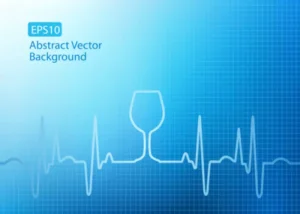Alcohol Use Disorder and Dementia: A Review Alcohol Research: Current Reviews
Find out about Alcohol-related ‘dementia’ including symptoms, diagnosis, treatment, support and rehabilitation. In some cases, symptoms of alcohol-related dementia are not reversible, so early diagnosis and prompt treatment are essential. Nevertheless, seek a doctor’s advice on reducing your alcohol intake to prevent withdrawal symptoms. Psychosocial support from close family members and friends can also be helpful. Your doctor may recommend nutrition and other medications to treat any specific symptoms.
Excess alcohol consumption may speed up progression of Alzheimer’s disease
The alcoholism treatment consists of IV therapies and infusions which attempt to reestablish the proper nutritional balance of the body. Patients need to stay in clinics or hospitals for certain periods where they will be closely monitored and treated. Alcohol must be avoided at all costs during the treatment period, a thing which most alcohol abusers find very hard to do. This happens because alcohol addicts have become so used to this toxic substance that the body craves it regularly. To clarify things, people who get tipsy once a week by having a few beers or glasses of wine with friends are less prone to develop common alcohol dementia stages. On the other hand, if one gets intoxicated with alcohol regularly, has the symptoms of hangover almost daily, vomits frequently and feels dizzy most of the times, this can lead to alcohol-related dementia.
Treatment for Alcohol-Related Dementia
- There tends to be a change in personality, reduced impulse and emotional control which may lead to conflict and socially inappropriate behaviour.
- Symptoms of alcohol use disorder are based on the behaviors and physical outcomes that occur as a result of alcohol addiction.
They will need different kinds of support, which may not always be easy to access. After the first part of treatment, a person with alcohol-related ‘dementia’ will need support from different kinds of services. In order to make a diagnosis of alcohol-related ‘dementia’, a doctor may ask the person to do a paper-based test to check for problems with memory and thinking. A person with alcohol-related ‘dementia’ may also have problems with their memory. They might not be able to understand new information – for example, they may quickly forget the details of a conversation. They may also not be able to recall knowledge and events, such as where they lived previously or places where they have been on holiday.
Frontotemporal Dementia (FTD): Types, Symptoms, and Stages
The two primary kinds of ARBD that can induce dementia symptoms are alcohol-related ‘dementia’ and Wernicke-Korsakoff syndrome. As there is some possibility of recovery in both of these disorders, they are not actual forms of dementia because dementia is an irreversible condition [2]. Therapy for alcoholic dementia can include management of AUD, nutritional supplementation to compensate for nutrient deficiencies, and exercises to help improve cognition (thinking abilities) and motor skills. Excessive alcohol use for many years is linked to alcoholic dementia, and some people can develop alcoholic dementia more rapidly than others. Drinking alcohol in moderation has not been considered a cause of health problems or dementia.

Viagra is the commercial name for a compound called sildenafil, which is used to treat erectile dysfunction by increasing blood flow to the penis. But, according to can alcoholism cause dementia new research, it may also improve blood flow to the brain. A lifelong runner, retired educator and matriarch of a large family, Zerbe joined Ornish’s study in 2019.

Alcohol changes gene expression, may lead to memory loss
You could potentially experience any combination of these effects when withdrawing from alcohol. You should discuss your intentions with your healthcare provider, who can work with you to help plan your next steps toward recovery. If you or a loved one is living with AUD, it can be challenging to stop drinking.
The Timeline of Alcohol Withdrawal
- If you already drink alcohol within the recommended guidelines, you do not need to stop on the grounds of reducing the risk of dementia.
- This is because alcohol damages the part of the brain that controls balance, co-ordination and posture.
- Alcohol-related dementia often occurs in people who experience long-term alcohol misuse.
People with alcohol-related dementia may experience painless vision loss, gait abnormalities, or mental status changes such as apathy and a lack of speech. Some people with advanced cases of the condition may experience hallucinations and irreversible and severe memory impairments. Your answers will help them determine whether malnutrition or chronic alcohol misuse may have caused vitamin B1 deficiency. Alcohol-related dementia, also known as Wernicke-Korsakoff syndrome, is a brain disorder marked by memory, learning, and cognitive dysfunction due to alcohol use disorder.

Previously, it was believed that neurons were solely responsible for the responses related to Alzheimer’s. Only recently, these other cell types have been identified to have a role in the development of the disease. “We know that inhalational use of alcohol can lead to higher brain concentrations than the oral route. Metabolism of ethanol changes when exposure bypasses the [gastrointestinal] tract.
Study finds 3 big risk factors for dementia
- And although the likelihood of having dementia also increases with age, it is not a typical part of aging.
- People with alcohol-related dementia may experience painless vision loss, gait abnormalities, or mental status changes such as apathy and a lack of speech.
- Despite some claims, drinking alcohol in moderation has not been shown to offer significant protection against developing dementia.
- This means that the number of people living with ARBD is probably higher.
